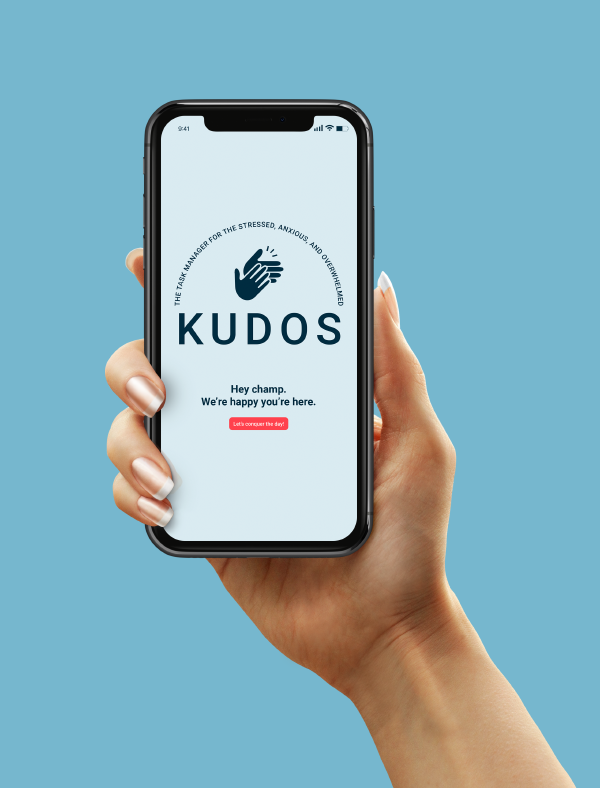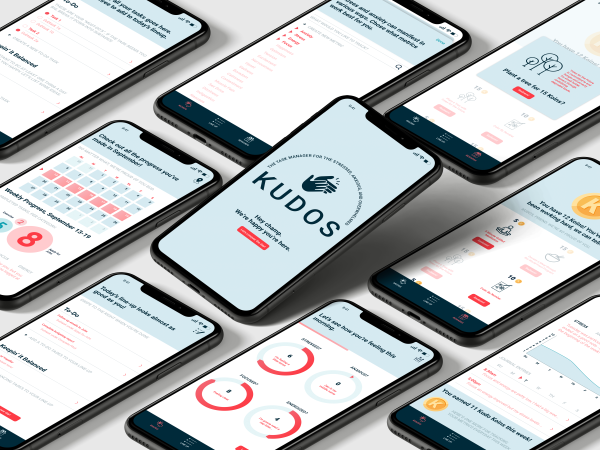Kudos
According to nopanic.org, 1 in 6.8 people experience mental health problems in the workplace. 12.7% of sick days in the UK are due to mental health conditions and 7.8% of Britain’s population meets the criteria for mixed anxiety and depression making it the most common mental health disorder in the country. Unchecked stress and anxiety leads to an increase in susceptibility to chronic respiratory disorders, heart disease, depression, and thoughts of suicide.
For this project, I investigated how I might be able to encourage productivity while simultaneously being sympathetic to common symptoms of anxiety and stress.
I consulted with Cincinnati-based licensed Clinical Psychologists, Dr. Aldo Franchi and Dr. Maureen Murphy during my research and supported my theories through qualitative methods. I asked 11 potential users to take on a specifically designed task journal that employed the Subjective Units of Distress (SUDs) scale, encouraged prioritization of tasks, and asked for end-of-day reflections.
From this research I developed Kudos, the task manager for the stressed, anxious, and overwhelmed. Kudos employs a method that takes on tasks and subtasks as a mode of breaking down feelings of overwhelm often associated with anxiety. As Dr. Franchi stated, “One of the things we know from psychotherapy… is that with what we call the act of ‘self monitoring,’ anything improves automatically.” Self monitoring feelings of anxiety and stress are important in allowing users to understand their own progress; a variety of descriptors are included on the platform so that users can monitor feelings and moods most relevant to their experience. Users can view their trends on a daily, weekly, or monthly basis with important insights on how their moods affect their productivity.
However, this trend of improvement decreases overtime, in part because, as Dr. Murphy stated, “We habituate as human beings and we get bored. We’re always seeking novelty.” A way to combat this boredom is to introduce novelty, or at least, give the perception of novelty. In this way, a rewards-based system is styled according to the insights of B.F, Skinner’s studies in which he discovered that behaviors that are rewarded on a variable interval are the hardest to extinguish. Kudo Koins, awarded on a variable interval of completed tasks, can be exchanged for mindful and rewarding prizes such as short guided meditations, donating meals through the World Food Program, or planting a tree through Trees for the Future.


